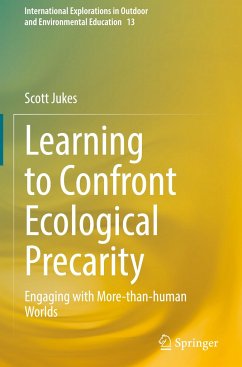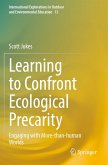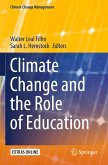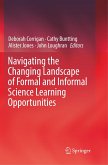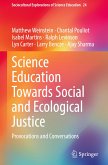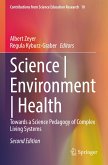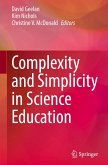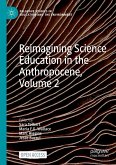This volume presents innovative approaches for confronting environmental issues and socio-ecological inequality within Outdoor Environmental Education (OEE). Through experimentation with alternative pedagogical possibilities, it explores what OEE can do in response to ecological precarity.
Drawing upon posthumanist theory, it focuses on the enactment of more-than-human pedagogies that foster affirmative environmental relationships while challenging problematic cultural perspectives. The 12 chapters explore various topics, including place-responsive pedagogies, environmental stories, new materialist theoretical insights and waste education practices, engaging with complex environmental issues such as species extinction and climate change in the context of OEE.
This book provides practical examples and conceptual creativity to extend contemporary theoretical currents. It offers innovative pedagogical strategies and methodological insights for OEE. Researchers, students, and practitioners of OEE interested in applying posthumanist ideas to their work will find this volume most interesting.
Drawing upon posthumanist theory, it focuses on the enactment of more-than-human pedagogies that foster affirmative environmental relationships while challenging problematic cultural perspectives. The 12 chapters explore various topics, including place-responsive pedagogies, environmental stories, new materialist theoretical insights and waste education practices, engaging with complex environmental issues such as species extinction and climate change in the context of OEE.
This book provides practical examples and conceptual creativity to extend contemporary theoretical currents. It offers innovative pedagogical strategies and methodological insights for OEE. Researchers, students, and practitioners of OEE interested in applying posthumanist ideas to their work will find this volume most interesting.
"This book is important for a wide audience that encompasses pre/in service teachers and postsecondary institution instructors in environmental sustainability education, climate change education, place-based education and outdoor education, amongst interdisciplinary practitioners ... . For those who are seeking hope for relational and sustainable futurity within a (re)configuring of different temporal horizons, I thoroughly recommend reading Jukes' book." (Kathryn Riley, Australian Journal of Environmental Education, February 13, 2024)
"(Re)making our own selves time and time again within present-moment becoming-withs with all other planetary inhabitants, is the ethic and practice that I think Jukes intends, when he invites us to learn to confront ecological precarity and engage with more-than-human worlds. As learning and engaging are indeed verbs ... . For those who are seeking hope for relational and sustainable futurity within a (re)configuring of different temporal horizons, I thoroughly recommend reading Jukes' book." (Kathryn Riley, Australian Journal of Environmental Education, February 13, 2024)
"(Re)making our own selves time and time again within present-moment becoming-withs with all other planetary inhabitants, is the ethic and practice that I think Jukes intends, when he invites us to learn to confront ecological precarity and engage with more-than-human worlds. As learning and engaging are indeed verbs ... . For those who are seeking hope for relational and sustainable futurity within a (re)configuring of different temporal horizons, I thoroughly recommend reading Jukes' book." (Kathryn Riley, Australian Journal of Environmental Education, February 13, 2024)

